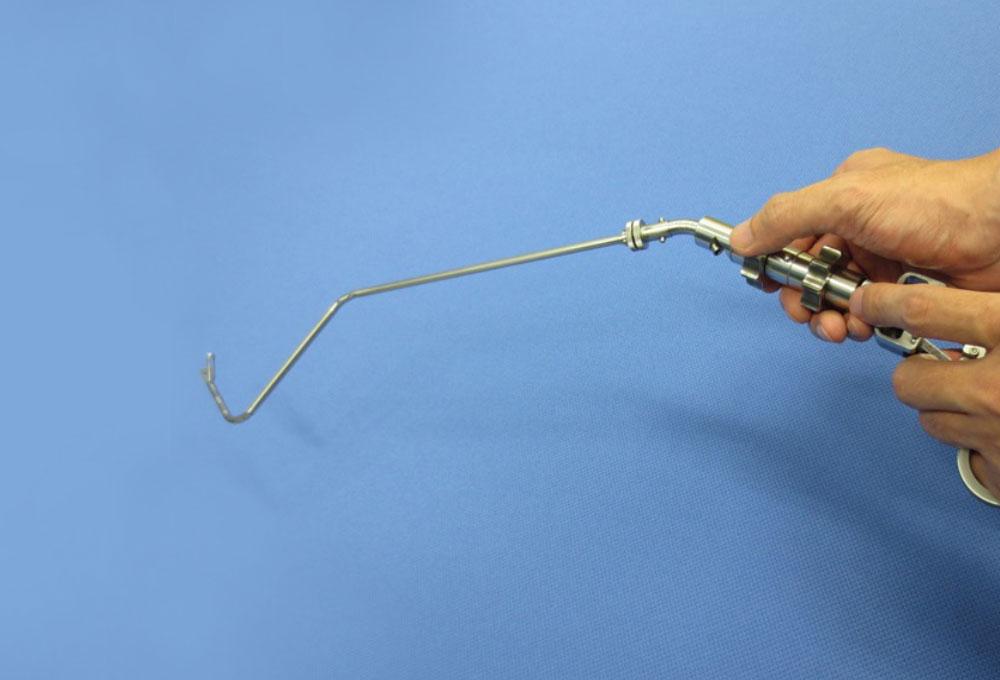Beyond precision machining…
Toward a first-class supplier in future medical care
Case study1
For achieving advanced operability
Long-tapered wire
A multistage long-tapered wire can be produced with the minimal diameter of 0.04 mm, the grinding length of 750 mm, and the maximum length of 3.3 m. This kind of wires are being used for medical devices such as a guide wire.
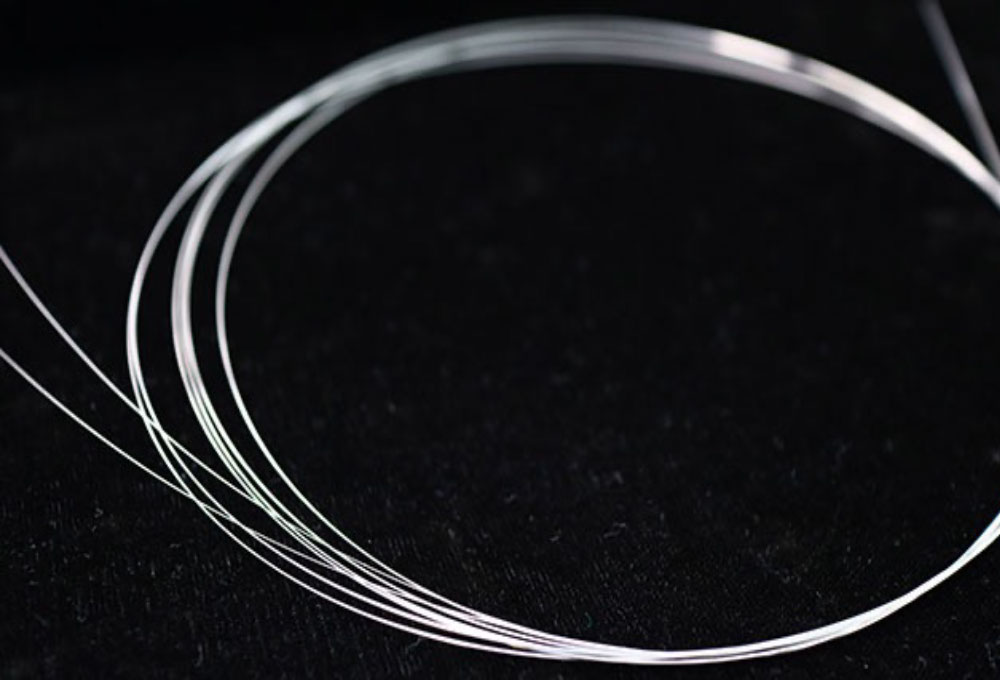
Case study2
For superelasticity and shape memory function
Nickel-titanium products
The photo on the right shows a sample product of super elastic wire with shape memory treatment. A nickel-titanium medical device can be formed into a suitable shape for a treatment.
Furthermore, fluorine coating (PTFE) can be applied for providing antifouling function.
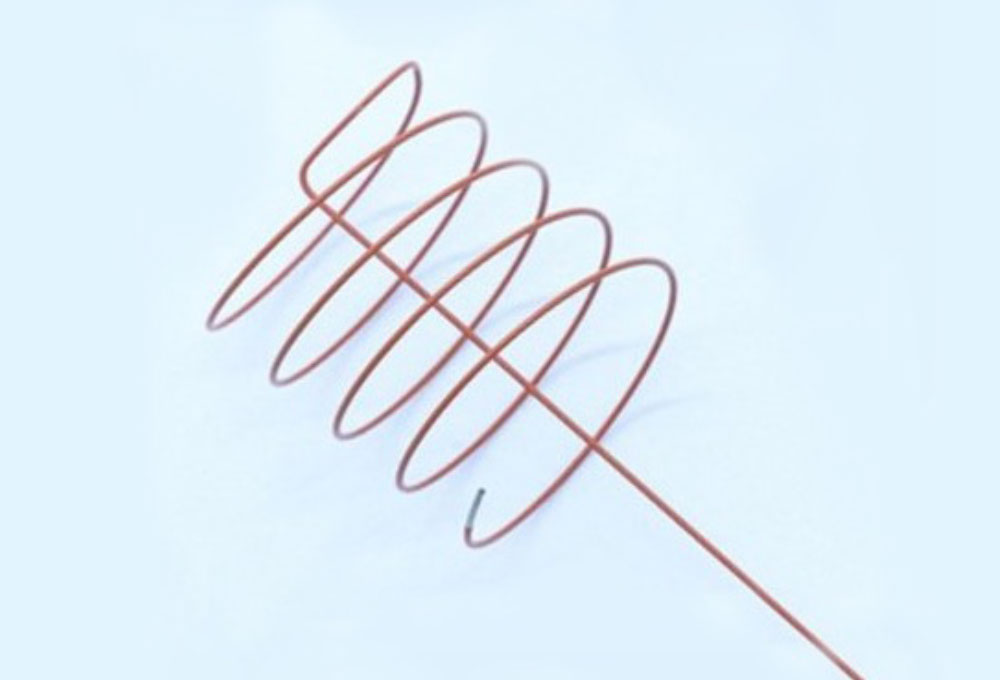
Case study3
For tiny medical devices with higher functionality
Microfabricated components
The photo on the right shows a tiny microfabricated component made of ceramic that fit on a fingertip, having the outer diameter of 1.6 mm and a tapered hole with the minimum diameter of 0.32 mm.
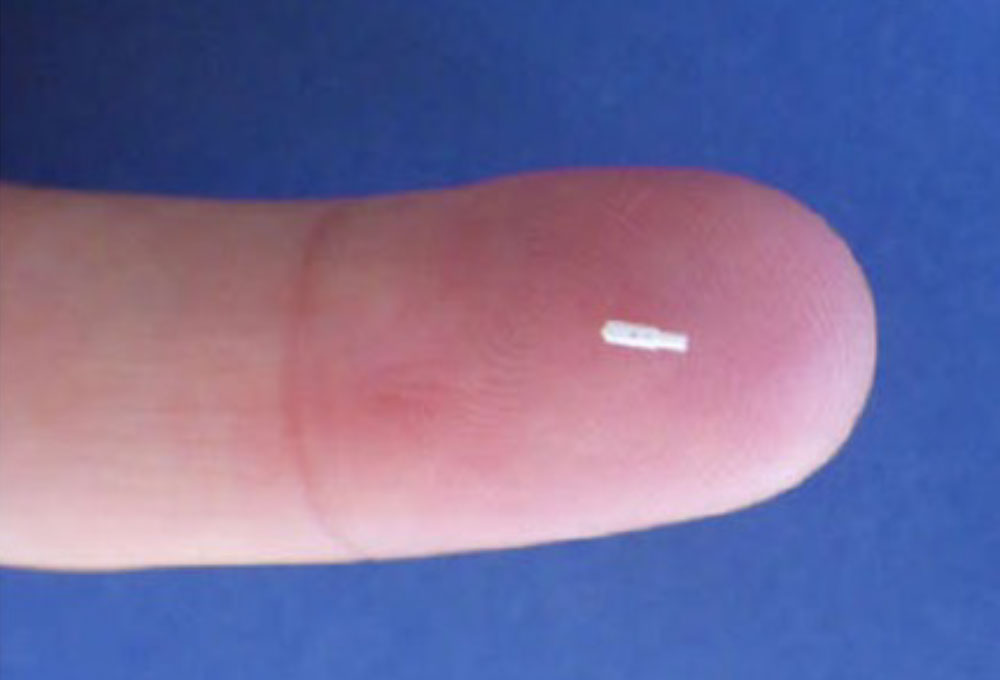
Case study4
For functional components for an endovascular treatment device, etc.
Slit processing with laser
Ultra-short pulse laser in picosecond or nanosecond order can cut out fine shapes from a wire or small diameter pipe without degrading the property of its material functionality.
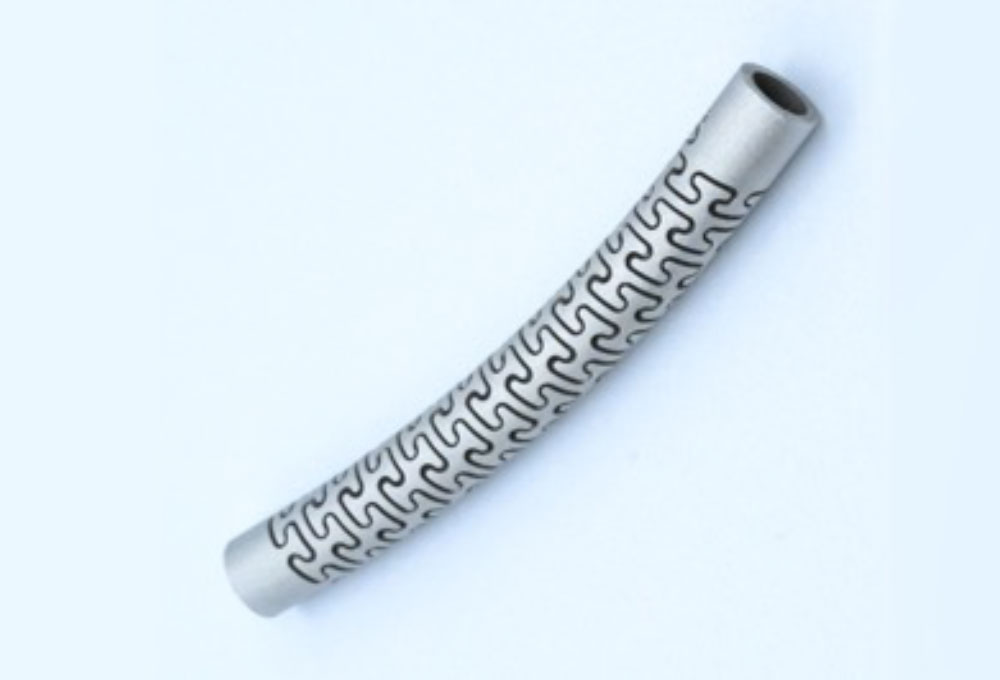
Case study5
For application-specific puncture characteristics
Needle tip forming
A tip of needle or nozzle used in medical devices can be processed into variety of shapes so that it can have suitable characteristics, such as puncture resistance, for its application. The Menghini shape, for example, is featured by lower puncture resistance.

Case study6
For higher functionality
Assembled products
Assembling multiple components is often required to achieve the functions and characteristics needed for medical treatment. FUTA-Q can meet the requirements by utilizing a variety of joining techniques such as soldering, adhesion, and caulking.

Case study7
For one more step in medical treatment
Full-custom designed specialty forceps
The photo on the right shows a single-hole laparoscopic forceps that is structurally designed and embodied through repeated prototype tests, based on the surgeon's requirements who actually used it. This has an angle-adjustable three bending sections and the gripping section at the end rotates.
